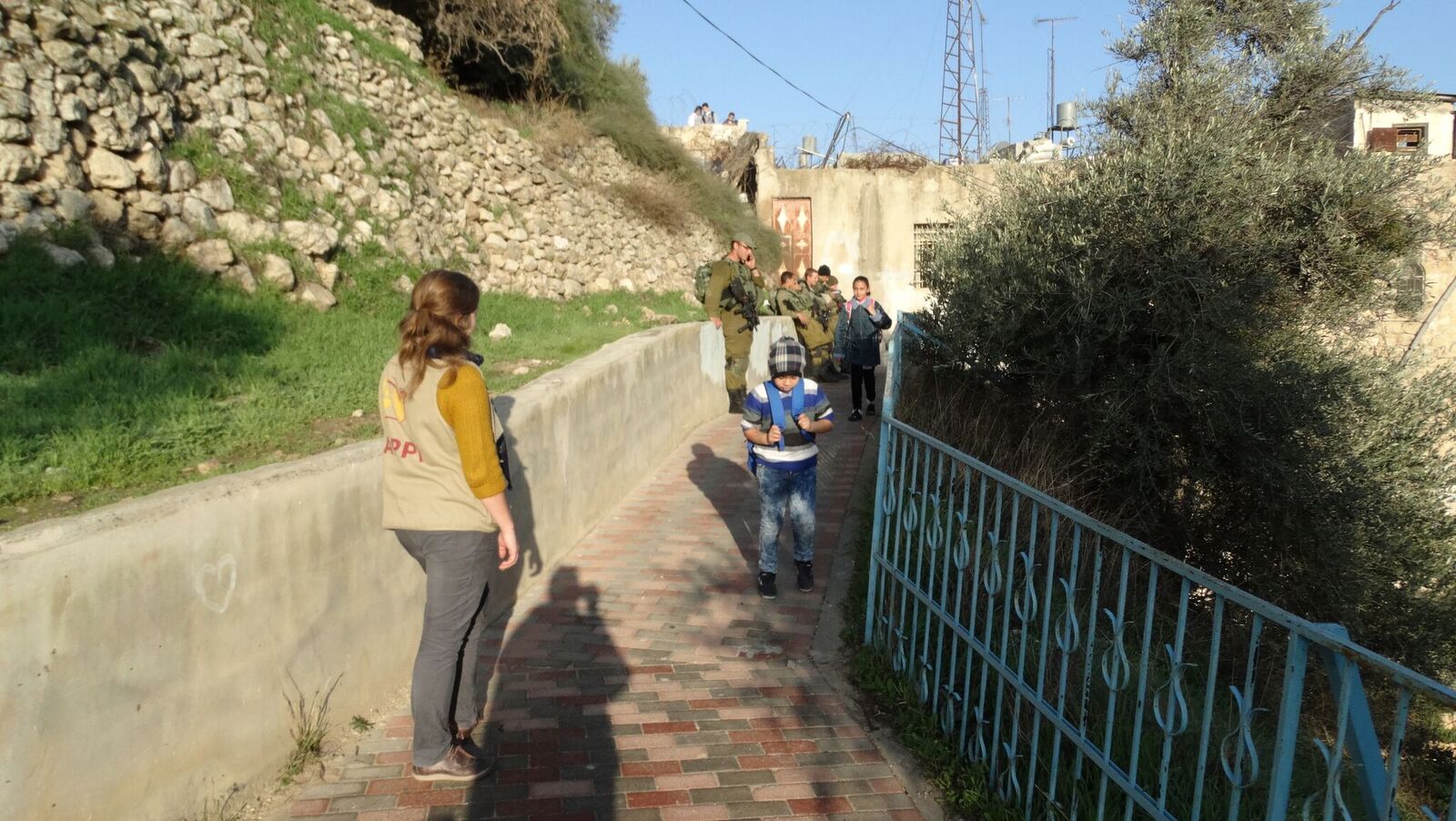Settlers attack international human rights monitors
International human rights monitors whose presence protects vulnerable schoolchildren – in Hebron, occupied Palestine – face verbal and physical attack by Israeli settlers.

The United Nations Coordinator for Humanitarian Aid and Development Activities, Robert Piper, this week visited Hebron and met a British human rights monitor who is facing daily harassment from Israeli settlers. Hannah Griffiths has been hit, kicked and threatened.
Mr Piper said after the visit, “Protective presence organisations are on the front line of this work in the occupied Palestinian territory, embodying the support of the world community to the people of Hebron and defending the rights of Palestinian children, not least to a safe journey to and from school. They must be allowed to continue their work without violence, threats or retaliation."
Settlers have produced intimidating posters showing images of the monitoring team with text in Hebrew stating 'these are hostile anarchists, deal with them'. The team of international human rights defenders are there to monitor and report human rights violations against vulnerable communities. The team are there to ensure safe access to education for children.
[QUOTE-START]
Protective presence organisations are on the front line of this work, embodying the support of the world community to the people of Hebron
- Robert Piper, United Nations
[QUOTE-END]
Hannah Griffiths is in Hebron with the Ecumenical Accompaniment Programme in Palestine and Israel (EAPPI). The monitors are known as ecumenical accompaniers (EAs). This human rights programme is based on the concept of principled impartiality with the framework of international humanitarian law. The World Council of Churches established EAPPI in 2002 responding to a request from the churches in Jerusalem. The programme is managed by the Quakers in UK and Ireland.
On 14 October, a settler woman chased Hannah down Shuhada Street – a street in the city centre of Hebron controlled by the Israeli authorities. Hannah was thumped and kicked. She says: “The situation has got so much worse in the last few months. We are being targeted but it is worse for local Palestinians who tell us that they are scared. Teachers are scared to go to work, and children are scared to go to school."
The monitors' nonviolent presence makes a difference
The monitors' nonviolent presence makes a difference. Twice a day, Hannah monitors children going to Qurtuba School. A pupil, 11-year-old Qusai says, “When we see settlers we want to turn back and go home, but when we see EAs we feel safer and keep walking". Hannah has observed increased military and settler presence when children are walking to and from school. “This suggests that they are specifically targeting children and internationals," she says.
Now the Israeli army is imposing increasingly strict measures on the movement of Palestinians. Hebron is a microcosm of the conflict as in some streets Israeli settlers and Palestinians are living in adjacent houses. Since 30 October, there has been a closed military zone in part of the city centre. This zone includes the route that 90 children, including Qusai, take to reach Qurtuba School.
The new restrictions effectively deny safe access to education for the children as the UNICEF-funded internationals cannot legally enter the area to provide protection. They cannot monitor the route to school and so children, as young as three years old, face daily harassment from settlers and soldiers.